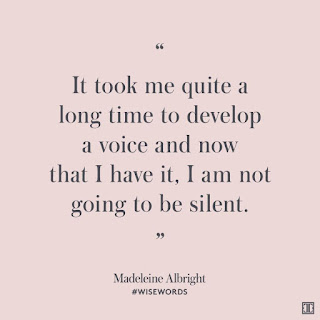From Self-Shaming To Becoming Enough: Week One - Increasing Our Understanding
Week One - Self-Shaming: Increasing Our Understanding
 |
| Healing Begins By Increasing Our Understanding |
Shame. Just the sound
of the word is heavy. Shame. It is laden with debilitating emotions which
cause most individuals to recoil at its emergence into our lives. Renowned researcher and author Dr. Brene' Brown has courageously tackled the topic
of shame and brought it into the comforting light of conversation. Dr. Brown defines
shame as the following:
“The intensely painful feeling or experience of believing
that we are flawed and therefore unworthy of love and belonging – something
we’ve experienced, done, or failed to do makes us unworthy of connection.”
(blog, 2013/01/14)
In examining the definition of shame more closely, it is
important to focus on Dr. Brown's words: “The intensely painful feeling or
experience of believing that we are flawed and therefore unworthy...” When
individuals internalize the belief that they are flawed and unworthy, they
begin the process of Self-Shaming. In other words,
Self-Shaming is the cognitive and behavioral practice of self-devaluation which manifests as
the result of feeling shame or being shamed by someone or something.
Read again, slowly.
Self-Shaming is the cognitive and behavioral practice of self-devaluation which manifests as
the result of feeling shame or being shamed by someone or something.
Read again, slowly.
Self-Shaming is the cognitive and behavioral practice of self-devaluation which manifests as the result of feeling shame or being shamed by someone or something.
Although Self-Shaming is expressed cognitively and
behaviorally, it begins by showing up in our lives predominately through our
life-messages. Life-messages are an individual’s internal dialogue or messaging
composed from each person’s unique life experiences and perceptions of them.
Life-messages come from external and internal sources of influence or impact.
Life-messages are powerful. They form our personal truths about ourselves and
our inner-personal value.
In my years of therapeutic practice working in the areas of abuse
and trauma, clients usually enter therapy with a lengthy history of
Self-Shaming. However, it is not unusual for any individual who has endured or
been exposed to any kind of adverse childhood/adult experiences or unhealthy
relationships to internalize their shame in the form of self-deprecating
life-messages.
A few sources of shame which trigger Self-Shaming
life-messaging include the following:
- Children who are bullied or cyber bullied Self-Shame with life-messages such as: “I am stupid. I am ugly. I am fat. No one likes me.”
- Partners who are in or who have been in toxic, dangerous, and abusive relationships message themselves: “I am not good enough. I don’t matter. Something is wrong with me. It’s all my fault.”
- Individuals raised by abusive, critical, unstable and neglectful parents and guardians Self-Shame with messages such as: “ I am not enough. I am not lovable. Why am I here? Who would want me?”
- Abuse or trauma victims carry intense Self-Shaming life-messages including the following: “It is all my fault. I am to blame. I am nothing. I don’t belong here. I feel dirty. I feel invisible.”
In addition to the painful nature of Self-Shaming, one of
the most insidious and injurious characteristics of Self-Shaming is that is shrouded
in secrecy and silence. Because we do not feel safe to share our Self-Shaming
for fear of being further judged, blamed, or shamed, we keep it to ourselves.
Within the confines of our emotionally fragile landscape, we unintentionally
reinforce and condition our feelings of unworthiness and inadequacy through the
repetitive nature of Self-Shaming and through the repression of our truths.
One of the most consistent findings in a two-year
qualitative study of "Daughters Betrayed By Their Mothers: Moving From Brokenness To Wholeness", was the shared secrecy and silence in which the
Daughters contained their Self-Shaming.
Because of cultural, ethnic, spiritual, societal, and traditional norms
regarding mothers and motherhood, the Daughters were not able to disclose their
debilitating life-messages:
- I am not enough.
- I am not wanted.
- I don’t feel worthy of love.
- I feel invisible. I know I do not matter.
- I’m ugly.
- I shouldn’t be here.
In closing, Self-Shaming does not discriminate. Most of us
experience feelings of inadequacy and unworthiness from time to time. Sadly, many individuals are defined by these
feelings, quietly suffering and desperately searching for someone or something
to fill their well of worthlessness. By increasing our understanding as to what
Self-Shaming is, we can then begin to acknowledge its presence in our lives.
This is where healing begins.
Reflective Exercise: Utilizing any writing modality which is
comfortable for you, begin writing down your Self-Shaming life-messages. Think back as far as you can regarding your
life experiences and write down any and all messages, regardless of severity or
intensity. Take your time. Honor your
voice and your truth.
Next time, “Self-Shaming: External Causes"
More Healing Resources @ Holli Kenley
Like Us on Facebook


Comments
Post a Comment